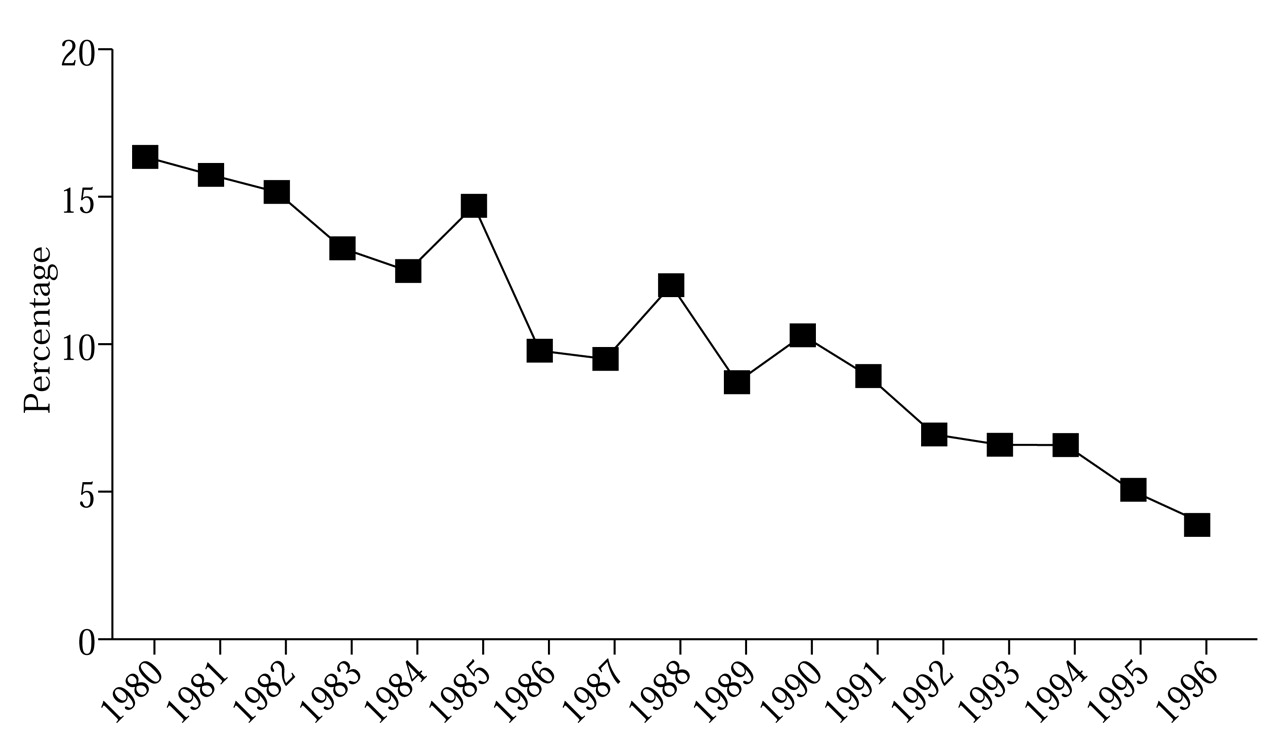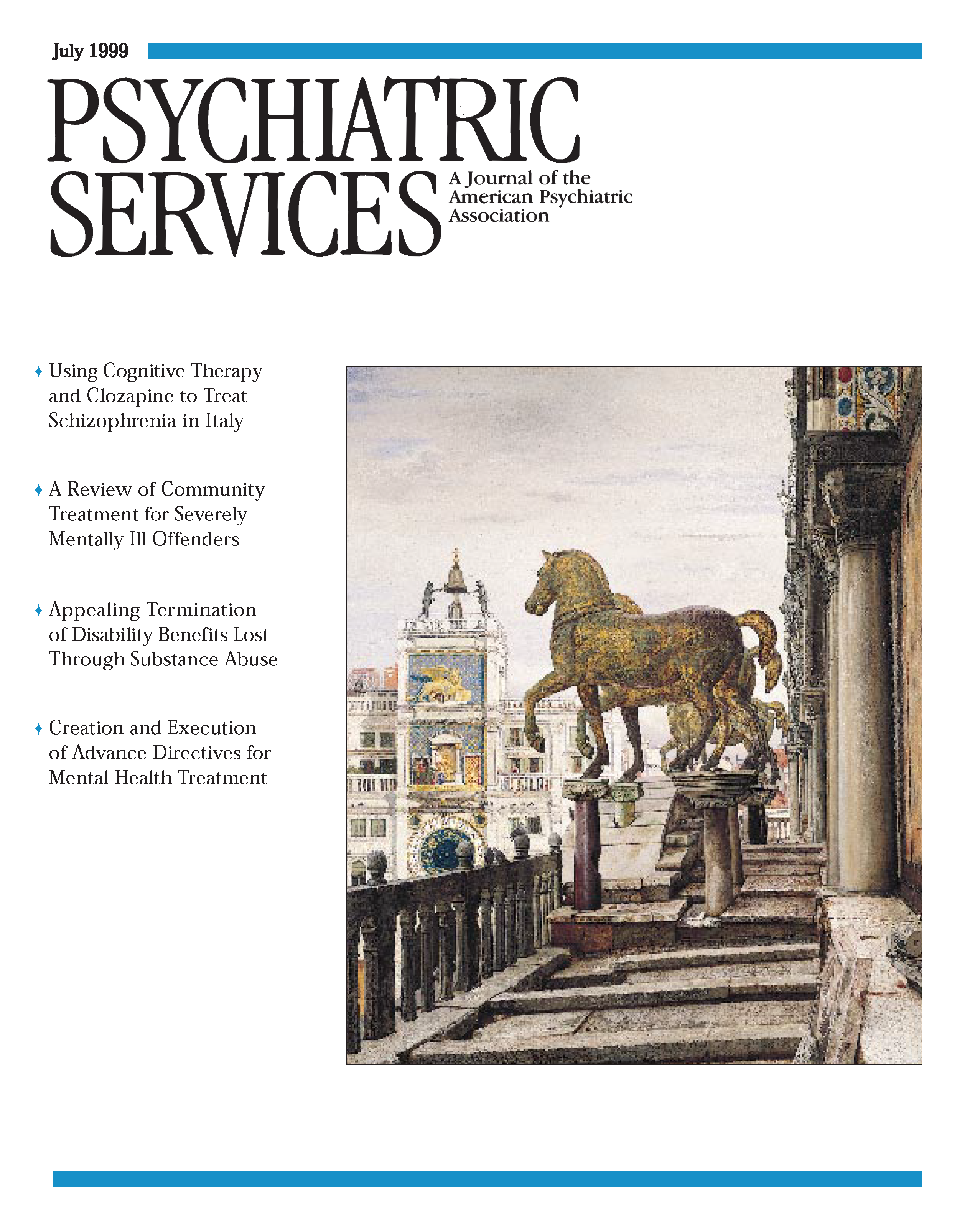The rapidly changing health care system requires expert clinician leaders to assure that changes in service systems enhance, or at least maintain, quality patient care. The number of graduates from master's-degree programs specializing in psychiatric nursing has decreased significantly over recent years; annually there are fewer graduates in psychiatric nursing than in any of the other core mental health professions (
1). This decline implies a future shortage of psychiatric nurses to fill leadership, teaching, and clinical positions in the health care system.
Data from the National League for Nursing (NLN) show that the number of graduates with a master's degree in psychiatric nursing decreased dramatically from 781 in 1980 to 443 in 1996, a period during which graduations from all types of master's programs in nursing soared from 4,778 to 9,953. About 74 percent of psychiatric nursing enrollees were part-time students in 1996, compared with 51 percent in 1980, increasing the overall length of time between enrollment and graduation.
As
Figure 1 shows, the percentage of graduates with a specialty in psychiatric and mental health nursing dropped from 16.3 percent in 1980 to an all-time low of 4.5 percent in 1996. Decreased federal support for traineeships was suggested as a primary cause of the decline in the mid-1980s (
2), but more recent declines may also reflect the increase in nurse practitioners, from 18 percent of all master's-level graduates in 1991 to 43 percent in 1995.
The increasing use of nurse practitioners in health care delivery is also reflected in changes in the graduate education of psychiatric nursing specialists. NLN data show that the number of psychiatric nurse practitioner programs increased from ten in 1991-1992 to 33 in 1994-1995. The number of psychiatric nurse practitioner graduates increased from 47 in 1991 to 100 in 1996, while the number of graduates of master's level psychiatric nursing clinical specialty practice programs decreased from 492 to 324.
The failure to educate an adequate number of graduate-level psychiatric nurses will reduce the quality of psychiatric nursing education in basic nursing preparation programs and the quality of care in practice settings. In 1994 a total of 82,620, or 14.3 percent, of full-time-equivalent positions in mental health organizations were filled by registered nurses (
1), the vast majority of whom received their education and clinical experience in psychiatric nursing in their basic nursing program.
The unique combination of physical health care and psychiatric knowledge and skills possessed by advanced-practice psychiatric nurses is essential for providing high-quality, cost-effective patient care. Incentives must be available to increase the number of nurses with graduate degrees in psychiatric and mental health nursing to assure an adequate supply of these well-prepared and cost-effective providers.


